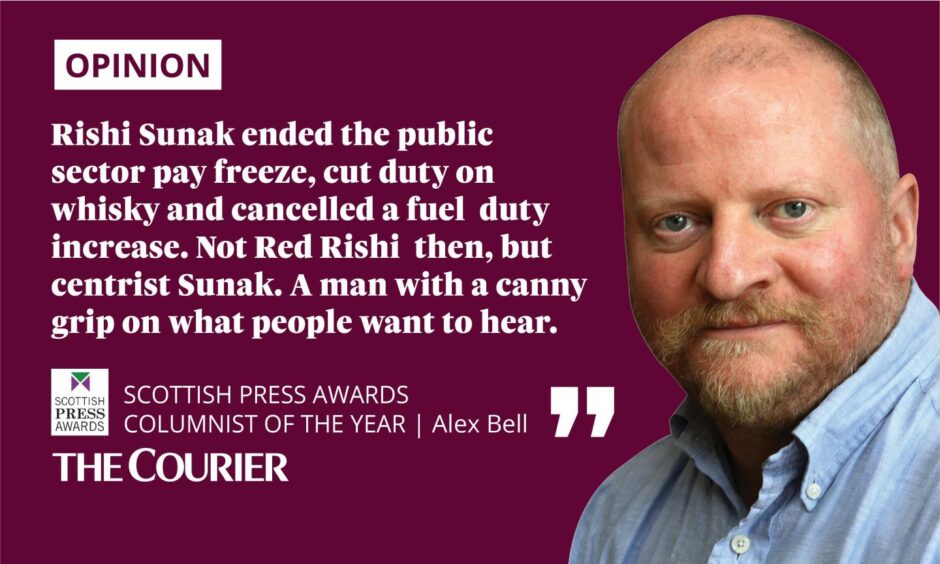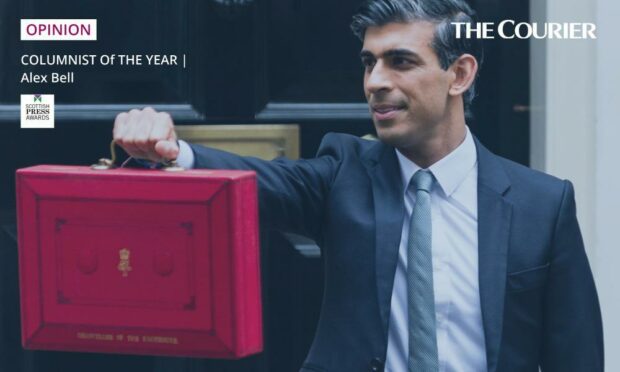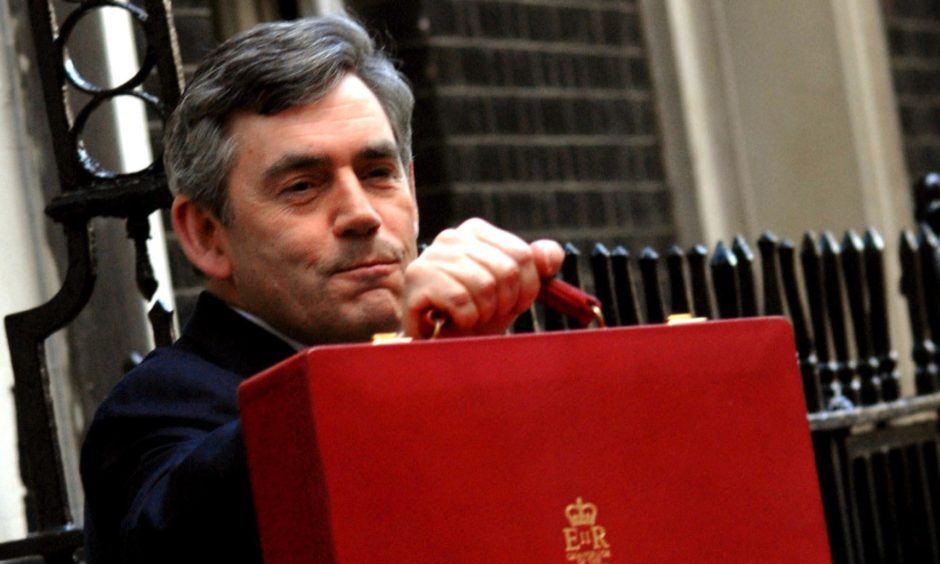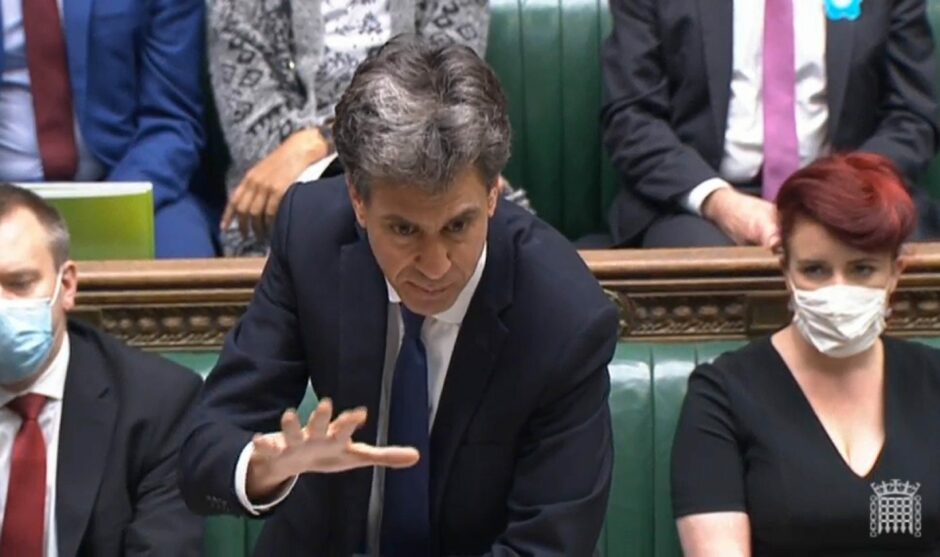“Our plan is working” said Rishi Sunak opening the budget. To which a nation bemused by Brexit said – there was a plan?
Strategy seems hard to spot, but fortune favours the brave, and there’s no doubt this government has courage.
This was the “prime minister’s economy” according to Sunak. Which would explain why much of this spending review was leaked in advance.
I can’t help but feel nostalgia for when there was one budget a year, and a sworn secret until the chancellor rose to the dispatch box.

Modern government is a slurry of fiscal changes and spending announcements.
Constant activity is presented as good government. It’s an illusion.
Less legislation and less fiddling means more consideration.
Good policy takes time, as this spending review ironically proved.
Minimum wage rise shows how much has changed
The minimum wage was introduced in 1997 by Labour.
Here is Margaret Beckett introducing the second reading of the bill
“Increasingly in recent years, the Conservative party has argued that Britain can only and should only seek to compete by aiming to be the cheapest at all costs; aiming to be the bottom of the heap; aiming for the lowest wages and the worst working conditions to be found among our competitors.”
Business and Conservatives were firmly against a minimum wage.
The CBI said: “Even a modest minimum, set around the £3 mark, could lead to job losses unless wage differentials are squeezed.”
While Tories objected to the bias of the Low Pay Commision, apparently loaded with Labour academics, John Redwood MP said: “We all object to the absence from the Low Pay Commission of anyone with hands-on experience of running a small business.”
That was a quarter of a century ago, pre-Brexit. It’s all changed now.
We’re increasing the National Living Wage next year by 6.6%, to £9.50 an hour.
For a full time worker, that’s a pay rise worth over £1,000.
It will benefit over 2m of the lowest paid workers in the country. #Budget2021 pic.twitter.com/1eBDn7RJBg
— Rishi Sunak (@RishiSunak) October 27, 2021
Not so long ago the Scottish Socialists demanded a £10 per hour minimum wage.
A Tory chancellor just pushed it to £9.50. Red Rishi?
The rise is a good thing. I expect this government to boost it again. It’s a fail safe feel good in an uncertain world.
It also puts business in a fix.
They can object, but without much effect when profits are given to shareholders, not workers.
The likes of Tesco might bristle but with an improved profit projection of around £2.5 billion for the supermarket, who cares?
Echoes of Gordon Brown in Rishi Sunak spending
There is an echo here of John Major’s moral code, when he objected to fat cats. This isn’t corporate conservatism, but it is common sense conservatism.
But the greatest similarity is with the chancellor who Margaret Beckett worked for.
The one who introduced the minimum wage, spending reviews, fiscal rules and the last great period of investment in public services – Gordon Brown.
Bizarre as it may seem, much of what was said in 2021 sounded like it came from 2001.
Rishi Sunak claimed to be the champion of the public services, our “common good”.
He declared that Early Years, a policy first championed by Brown, would become a focus.
He boasted that the block grant to Scotland would be its highest ever.
The last time Holyrood’s budget saw such surprising growth was under Brown.
Foreign aid was restored, new funds for adult education, hospitals to be built – all that was missing was the promise of “no return to boom and bust” as Brown used to claim.
This spending review doesn’t make Gordon Brown and Rishi Sunak political allies, but it does show how the New Labour example of occupying the middle ground with a mix of prudence and investment influenced British politics.
This is not more Thatcherism but a more centrist third way.
A difficult budget for others to oppose
Politically it worked 20 years ago, and it will work now.
A cultural resistance to the Conservatives means Labour and SNP voters won’t buy into it, but their parties will find it very difficult to attack.
Keir Starmer was absent from the commons with Covid. Assuming his full recovery, he may come to think that a lucky break.
For Nicola Sturgeon, still to publish any forecasts of independence spending, while occupying similar policy ground on public services and early years, there is ever diminishing distance between her and Boris.
Sunak’s reform of alcohol taxation even had echoes of her minimum pricing policy.
The SNP looks likes its fighting yesterday’s battles. It needs to flesh out the Indy offer to have something pertinent to say.
Rishi Sunak ended the public sector pay freeze, cut duty on whisky and cancelled a fuel duty increase.
Not Red Rishi then, but centrist Sunak. A man with a canny grip on what people want to hear.
With Brownian drama, he even improved Universal Credit, thus defusing the opposition’s strongest weapon.
Universal credit taper currently 63% ie for each £1 earned you gain only 37p
It's cut to 55%. So now for each £1 earned you keep 45p.
His stats say 2m families will keep extra £1,000/yr (clearly noted as similar to £20/yr uplift amount).
To be introduced by Dec. #Budget2021
— Martin Lewis (@MartinSLewis) October 27, 2021
All quite astonishing.
Not, though, a “new economy” as the government claims, but another shot at the model championed 20 years ago.
Another bid to somehow get Britain to be a bit more like the German economy.
Don’t forget, Gordon Brown also supported private investment in infrastructure and looked to entrepreneurs to build wealth, as Rishi Sunak does now.
Remainers like me must confess we never imagined this.
Mind you, I don’t think Brexiteers did either.


